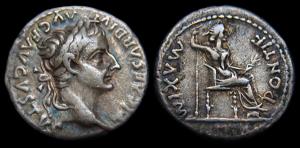
At Christmas, Christians celebrate the birth of Jesus, God’s Son. And that identity—the Son of God—is something we regularly affirm in our Christmas services.
How often, for example, have we read the words of Isaiah 9? “For to us a child is born, to us a son is given.” Or how often have we sung O Come O Come Emmanuel, which speaks of Israel mourning “in lonely exile here, until the Son of God appear”?
But despite our regular yuletide affirmations that Jesus is the Son of God, I suspect many of us have not fully considered what the phrase “Son of God” means.
So, today, we’re going to do just that. We’re going to look at the usage of the phrase “Son of God” in scripture, to see what we can learn about the meaning of that idea. As we do, we’ll find that the declaration that Jesus is God’s son is an announcement that he is the messianic king promised to Israel and that, further, he is the representative of all of God’s people.
“Son of God” as the King
One of the most significant dimensions of the “Son of God” idea comes to us from God’s covenant with David in 2 Samuel 7. There, God is speaking to David through the prophet Nathan, and he has this to say about the future of David’s line.
I will raise up your offspring after you, who shall come from your body, and I will establish his kingdom… I will be to him a father, and he shall be to me a son. When he commits iniquity, I will discipline him with the rod of men, with the stripes of the sons of men… And your house and your kingdom shall be made sure forever before me. Your throne shall be established forever.
Here God promises David an eternal kingdom, ruled by his “offspring,” who will be to God as a son. The “Son of God” is therefore a future king who will rule an eternal kingdom. In retrospect, we have a pretty good idea of what God had in mind.
Of course, the same idea comes up in Psalm 2. God is speaking about establishing the throne of David, and he says the following.
You are my Son; today I have begotten you. Ask of me, and I will make the nations your heritage, and the ends of the earth your possession.
A promise of a worldwide kingdom, ruled by a Davidic king, who was called God’s son. And again, in retrospect, we can only surmise that God was speaking of the future reign of Messiah Jesus.
“Son of God” and Caesar
Of course, the Jews weren’t the only ones who viewed the king as the Son of God. The Romans did as well! In fact, by the time of Jesus, the “imperial cult” in Rome was in full swing, and deceased emperors were regularly worshiped as gods. Moreover, starting with Julius Caesar, each emperor had adopted their successor as a son. Thus Tiberius, the emperor at the time of Jesus’ ministry, was the adopted son of Caesar Augustus, who had been divinized after his passing.

And this is more than just a matter of historical trivia. Rather, it was specifically emphasized by the Romans in order to support the emperor’s authority. Roman coinage in Jesus’ day was inscribed with an image of Tiberius and the phrase “Caesar Tiberius, Son of the Divine Augustus.” The Romans definitely wanted you to know that their king was the son of god!
And so, for both the Jews and the Romans, the phrase “Son of God” had strong overtones of kingship.
Affirming Jesus as King
When we read in the New Testament that Jesus is called the “Son of God,” it’s therefore worth remembering that this phrase is often associated with his role as king. Sometimes this comes through rather explicitly.
For example, in John 1, Jesus is calling Nathanael to be his disciple and Nathanael responds in faith. “Rabbi, you are the Son of God! You are the King of Israel!”
Similarly, in Romans 1, Paul gives a short summary of the gospel which presents Jesus as the king.
The gospel… concerning his Son, who was descended from David according to the flesh and was declared to be the Son of God in power according to the Spirit of holiness by his resurrection from the dead, Jesus Christ our Lord.
Here Jesus is twice referred to as God’s Son, and sandwiched in between those references is an affirmation of his descent from the Davidic line. It’s clear, then, that Paul is thinking of the association between “Son of God” and kingship as he summarizes the gospel in this way. He’s saying that God’s promised eternal king has been revealed!
Finally, we note one more beautiful affirmation of Jesus’ kingship at his crucifixion. He’s been tried and executed for claiming to be the King of the Jews. And, as he dies, Mark 15 tells us that the Roman centurion makes a bold proclamation: “Truly this man was the Son of God.” Given the history of that phrase, for both the Romans and the Jews, this is nothing short of the centurion’s renunciation of King Caesar and his pledging allegiance to King Jesus.
Jesus, and not Caesar, is the true Son of God according to this Roman soldier.
“Son of God” as God’s People
But there’s one other historical dimension to the “Son of God” idea that’s worth mentioning. In Exodus 4, God is giving Moses instructions for confronting Pharaoh and setting the people of Israel free. And he instructs Moses to tell Pharaoh this:
Thus says the Lord, Israel is my firstborn son, and I say to you, “Let my son go that he may serve me.” If you refuse to let him go, behold, I will kill your firstborn son.
In this case, it’s clear that God’s referring to his people, Israel, as his son. And this is an idea that’s picked up later on. For example, Hosea 11 says, “When Israel was a child, I loved him, and out of Egypt I called my son.” Here, again, God’s son is clearly the people of Israel.
And yet, despite the fact that Hosea is clearly referring to Israel as God’s son, Matthew 2 interprets Hosea’s phrase as a prophecy concerning Jesus’ flight to Egypt to escape Herod’s slaughter of the children. How is it possible that this phrase can so clearly refer to Israel, and yet Matthew can use it to speak of Jesus?
“Son of God” and Union With Christ
What’s going on here is that Matthew is working with one of the most foundational theological ideas in the New Testament: our “union with Christ.” In other words, it’s the idea that God’s people, both individually and collectively, become one with Jesus. It’s the reason Jesus can say to Saul “why are you persecuting me?” and not “why are you persecuting my church?” It’s the reason he can tell the disciples that whatever they do for their Christian brothers, they do for him. It’s the reason Paul can say he’s been crucified “with Christ.” And it’s the basis for the idea that the church is the “body of Christ.”
Thus, when Matthew quotes a “Son of God” text concerning Israel and applies it to Jesus, he’s not making a silly mistake. He is affirming Jesus as the representative of God’s people, as the individual to whom all of God’s people are joined. Jesus and his people are one, both for Matthew, and for the broader New Testament.
Exploring the ramifications of this idea in full will have to be a topic for a later post. For now, suffice it to say that this idea of “union with Christ” is foundational to many of the most basic Christian truths. It is, for example, because of our oneness with Jesus that he can justly and properly bear our sin. And Matthew affirms that truth here using the “Son of God” language.
Conclusion
So, this Christmas, when you sing about the birth of “God’s son,” think about it in these terms. The one who has been born as God’s son is the one who has been “born King of the Jews,” as the wise men said to Herod. The son “given unto us” according to the prophecy of Isaiah 9, is the king who will sit on the throne of David and there will be no end to “the increase of his government and of peace.” The Son of God is the promised king.
And yet, the Son of God is also our representative. He is all of God’s people wrapped up in one place. Because of his identification with us, he can bear our guilt. And because of our identification with him, we can take on his righteousness. The Christmas birth of God’s son therefore points forward to the redemption made possible by his death and resurrection, and to the glorious inheritance that he shares with us as adopted sons and fellow heirs.
As you celebrate advent this year, may these thoughts encourage you and deepen your understanding of the Christmas story!
Comments or Questions?
Have any comments or questions? Anything you think I’ve missed? Anything you’d add? Please leave a comment below. I’d love to hear from you! You can also follow me on Twitter if you’d like to get notified when I post something new. I usually write weekly!
Image Credit: Greyson Joralemon / Unsplash
















